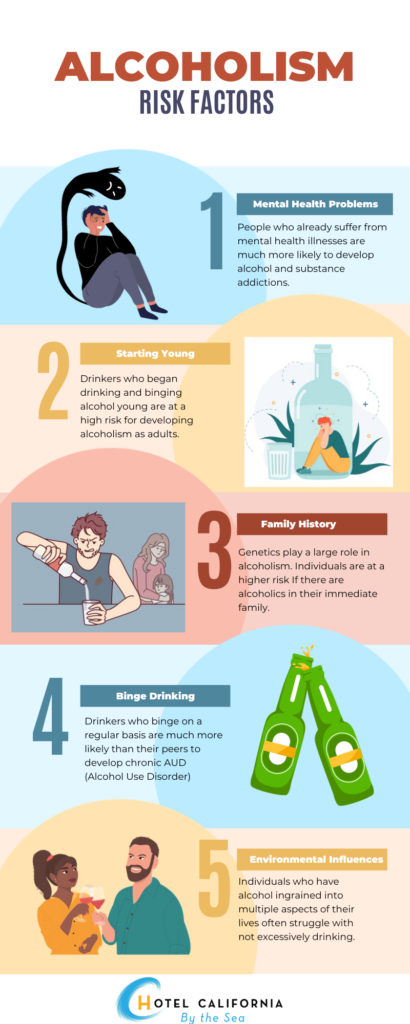Signs of a Functioning Alcoholic
According to the National Institute on Alcohol Abuse and Alcoholism, about 15 million American adults have an alcohol use disorder (AUD). About 20% of Americans with an alcohol use disorder are also high-functioning alcoholics. Functioning alcoholism is not an official medical diagnosis. It is an informal term used to describe a person suffering from alcohol abuse and dependency but is still able to function in their daily life. Functioning alcoholics may drink too much and may drink too often, but they keep up an appearance of being under control without any noticeable negative impact on everyday life.

Long-term chronic drinking can lead to moderate to severe damage. Issues such as damage to the brain, heart, liver and other vital organs are major factors when it comes to alcohol use disorder. Alcohol abuse has also been directly linked to conditions such as cancer and heart disease. When it comes to a functioning alcoholic, it might be easy for them to blend in with their friends and family because drinking alcohol is not illegal and it often a part of social norms. This makes hiding their alcohol abuse much easier.
For some Functioning alcoholics, they tend to keep their condition a secret. They are often internally struggling and dealing with stress while trying to maintain an appearance that everything is under control. In some cases, they are unaware of the severity of their alcohol abuse condition and can also be in denial of having a problem.
The signs of Alcohol Use Disorder
Medical and addiction professionals use alcohol use disorder as an umbrella term to describe all alcohol-related conditions. This includes the condition of functioning alcoholism. What is alcohol use disorder? According to the Diagnostic and Statistical Manual of Mental Disorders, Fifth Edition, if a person experiences at least two of the following conditions, they may have an alcohol use disorder.
- You try to cut back on drinking but are unable to
- You continue to drink even when you know you shouldn’t
- You spend a great amount of time drinking or thinking about drinking
- You get cravings for alcohol
- You engage in dangerous activities due to drinking
- You experience alcohol withdrawal
- You need to consume more alcohol in order to feel the desired effects
- You drink heavily and excessively
- You drink alone, secretly and at unconventional times
- You justify drinking as part of the norm
- You experience frequent problems in your personal and professional life due to drinking habits
Other symptoms of a person who may have an alcohol use disorder include losing control because of drinking, getting into arguments with friends over drinking, and getting into financial and legal trouble due to drinking.
Alcohol use disorder can lead to both physical and psychological damage. Some of the negative side effects include alcohol poisoning, a weakened immune system, irregular heartbeat, high blood pressure, short and long-term memory loss, fatty liver disease, fibrosis and the development of mental health conditions such as anxiety and depression.

The signs of a Functioning Alcoholic
- Drinking more than 2 drinks per day
- Hiding your drinking from others
- Lying about your drinking
- Drinking a large amount without appearing intoxicated
- Drinking during inappropriate or unusual times
- Finishing other people’s drinks
- You talk constantly about drinking
- Making jokes about having a drinking problem
- Drinking alone
- Being drunk regularly and drinking longer than intended
- Drinking to relax, feel confident and cope
- Drinking as a reward for success
- Having a high tolerance for large amounts of alcohol
- Canceling and rescheduling often in order to drink
- You engage in high-risk behaviors associated with drinking
- Your drinking has caused issues in your relationships with friends, families and colleagues
- You experience withdrawal symptoms when you try to stop drinking
you experience alcohol blackouts and memory impairment
Check Your Insurance Coverage for FREE
Find out if your insurance covers addiction treatment in minutes. We accept most insurance!
High Functioning Alcoholics vs Non-High Functioning Alcoholics
There is a difference between a high-functioning alcoholic and a non-high-functioning alcoholic. High-functioning alcoholics become very good at hiding their alcohol use disorder. Outwardly, they show no signs of having any issues with alcohol. A non-high-functioning alcoholic tends to show more of the traditional signs and symptoms of having an alcohol use disorder. Because of this, it may be easier to detect an alcohol use disorder in that person.
According to the National Institute of Health, a typical high-functioning alcoholic is a middle-aged person who is well-educated and has a stable job and typical family life. These people live a sort of “double life.” They appear to be highly functional on the outside. However, internally they may be anxious, depressed or angry and solely focused on when they will have their next drink. Oftentimes the ongoing anxiety and depression are fueled by fear that others will discover their alcoholism. This may drive them to drink even more and become even more secretive about their disease.
A high-functioning alcoholic can develop a dependence on the substance and experience withdrawal symptoms when they slow down or attempt to quit drinking. Most often, these users drink because they need to in order to feel “normal” and it is not always for the purpose of getting drunk. A high-functioning alcoholic can also develop an addiction, in which they are drinking in order to feel drunk and experience the side effects associated with alcohol use.
Risk Factors for a Functioning Alcoholic
- Binge drinking
- Peer pressure to drink
- Having a family member with an alcohol use disorder
- Struggling with mental health conditions
- Low self-esteem
- Having more than 7 drinks in a week for women and 14 drinks in a week for men
- Experiencing high levels of stress
Reach out to Hotel California by the Sea
We specialize in treating addiction and other co-occurring disorders, such as PTSD. Our Admissions specialists are available to walk you through the best options for treating your addiction.
Treatment of Alcohol Abuse
Functioning alcoholics can consume as much as a person with a diagnosed alcohol use disorder. However, they do not outwardly exhibit the symptoms because they have developed a high tolerance for the substances. Oftentimes, high-functioning alcoholics are at even greater risk of driving under the influence, committing alcohol-related crimes and overdosing. This is because their tolerance for alcohol is so high, that they do not present with any physical symptoms and can often be unaware of the severity of their addiction.
When high-functioning alcoholics are unaware of their AUD, they can also be in denial and are much less likely to seek out treatment for this mental health disease. At Hotel California by the Sea, we specialize in treating those with an alcohol use disorder. Our treatment program offers varying levels of care to address the client’s needs. Detox, residential and outpatient programming provide clients with a combination of medication-assisted treatments as well as cognitive behavioral therapies. Our program provides evidence-based treatments such as DBT, EMDR therapy and group therapy to help clients recognize any co-occurring mental health conditions associated with their addiction. Hotel California by the Sea is dedicated to helping clients overcome their alcohol addiction and living a life of sobriety and recovery.
References:
https://www.addictionhelp.com/alcohol/high-functioning-alcoholics/
https://www.hazeldenbettyford.org/articles/functioning-alcoholic-signs
https://www.addictioncenter.com/alcohol/high-functioning-alcoholics/
https://www.verywellhealth.com/what-is-a-functioning-alcoholic-8575997
https://www.alcoholrehabguide.org/resources/high-functioning-alcoholics/
https://www.verywellmind.com/what-is-a-functional-alcoholic-67879
